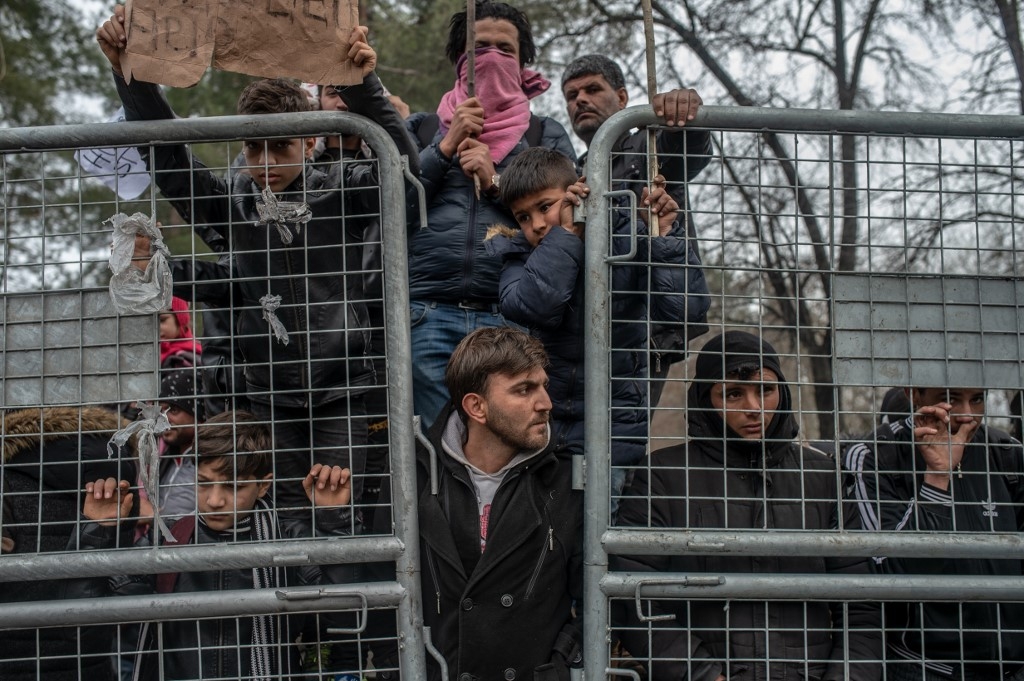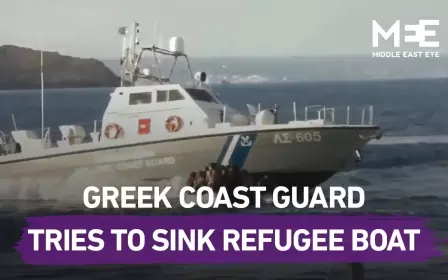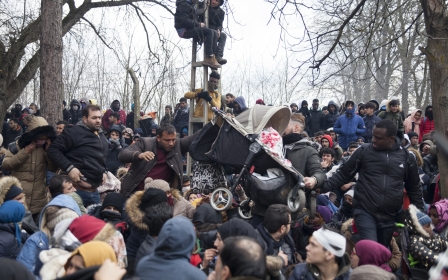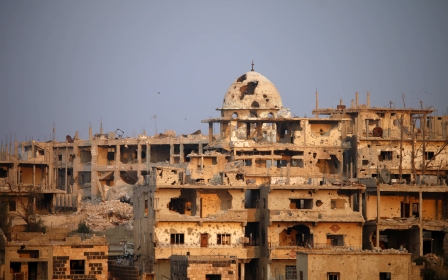EU ministers accuse Turkey of using refugees for politics

The European Union has accused Turkey of creating a crisis by opening its borders to refugees and migrants wanting to head to Europe.
More than 140,000 asylum seekers have left for Greece, Turkish interior minister Suleyman Soylu tweeted on Friday. Turkey announced last week that it would no longer stop migration as agreed in a 2016 deal with the EU. The refugees and migrants have been forcefully blocked by Greek authorities.
New MEE newsletter: Jerusalem Dispatch
Sign up to get the latest insights and analysis on Israel-Palestine, alongside Turkey Unpacked and other MEE newsletters
"The EU reiterates its serious concern over the situation at the Greek-Turkish border and strongly rejects Turkey's use of migratory pressure for political purposes," the ministers said in a statement after a meeting in Croatia.
"This situation at the EU external border is not acceptable … illegal crossings will not be tolerated."
Before the meeting, EU foreign policy chief Josep Borell had admitted that Turkey "has a big burden" and suggested the EU would discuss giving Turkey more money.
The statement made no mention of providing extra funding, however, and emphasised that the EU expected Turkey to abide by the 2016 deal, when the EU agreed to pay Turkey to stop the arrival of refugees and migrants in Europe after a million made those journeys in 2015.
Turkey has denied that it is using the refugees for political purposes. Foreign Minister Mevlut Cavusoglu told German newspaper Bild that Turkey "cannot shoulder this heavy burden on its own".
At least two refugees have reportedly died in the past week - a four-year-old child, who drowned when a boat capsized, and a man shot dead by Greek forces, according to Turkish security sources.
Although Greece denounced the man's death as "fake news", investigative group Forensic Architecture said analysis of open-source information suggested the video footage was real.
EU leaders visiting the border this week promised Greece €700m ($790m) in funding, including money to improve its border infrastructure, and praised Greece as Europe's "shield".
A collection of refugee rights and human rights groups issued a joint letter on Thursday condeming the EU's response and insisting they would document abuses at Europe's borders.
"Migrants and refugees are not a threat the EU should shield itself against, but are themselves threatened by state violence all along their precarious trajectories. We aim to use the tools of human rights to shield migrants and refugees from the brutality targeting them," they said.
Borrell also said that a ceasefire for Syria's Idlib region, signed by Russia and Turkey, would allow for more money to be sent to the region, where more than 950,000 people have been displaced by a government offensive.
"The ceasefire is good news. Let's see how it works, but it is a precondition to increase humanitarian help for the people in Idlib," he said.
Asked about a possible no-fly zone for Idlib, he said: "We have to concentrate our efforts on the humanitarian side."
Just before the ceasefire's deadline, Turkey launched a retaliatory strike against Syrian forces after two Turkish soldiers had been killed on Thursday.
The official news agency Anadolu Agency reported that 21 Syrian troops were "neutralised" by Turkish drones.
Turkey began a fierce attack on Syrian forces last week after 33 Turkish soldiers had been killed.
Middle East Eye delivers independent and unrivalled coverage and analysis of the Middle East, North Africa and beyond. To learn more about republishing this content and the associated fees, please fill out this form. More about MEE can be found here.




